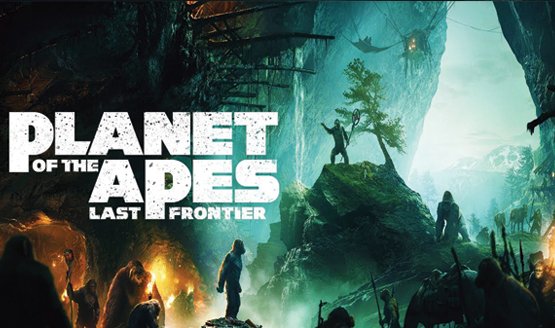There’s a fabled intersection that lies between two of the great entertainment industries—namely film and video games—that has bore witness to copious amounts of dull, uninspired blockbusters through the years.
And despite its best attempts at spawning the next big movie franchise in 2016, Assassin’s Creed became the latest casualty in Hollywood’s dreary pursuit of box office glory. If nothing else, the Michael Fassbender-fronted epic, which had the full backing of Ubisoft Motion Pictures, was further proof that just because an IP soars in one medium doesn’t necessarily mean it’ll succeed in the next.
But what happens when we flip the conveyor belt on its head and examine those video games that were spun out from cinema? Forget the likes of Resident Evil and Tomb Raider for a very brief moment; instead, let’s focus on games based on movies and—whisper it—why they’re still worth fighting for.
The Double-Edged Sword
First and foremost, let’s make one thing clear: adapting an existing property—be it a book, play or sprawling television series—is so often a double-edged sword. Strike a near-perfect balance between fidelity and innovation and you wind up with a time-honoured classic in the vein of GoldenEye. But when style comes at the expense of substance, and the spirit of the source material is lost in translation, you risk creating a licensed title that’s little more than a soulless, derivative shell of a video game. We’re looking at you, Colonial Marines.
OK, that was admittedly a little harsh. But the truth is you don’t have to search too far to locate a tie-in console game that is, in fact, a barely concealed marketing ploy. Throughout the 2000s, Hollywood big wigs worked in close collaboration with developers in order to engineer games based on some of the biggest blockbusters around—Bad Boys even got its own console tie-in, for crying out loud.
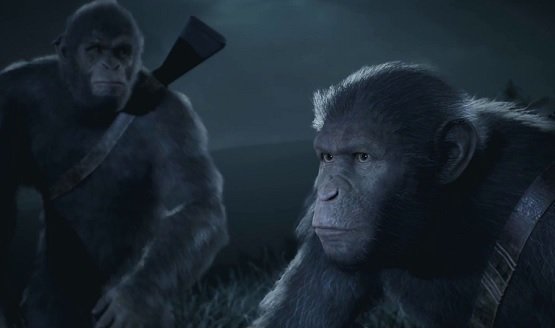
It’s a line of thinking that allowed major studios to launch their products day and date with a film’s theatrical release. Every once in a while, this console tie-in would resonate with players, who rushed out to buy ‘Game X’ solely on the strength of its license—Harry Potter and The Lord of the Rings spring to mind as worthy examples.
More often than not, though, innovation was snuffed out—or at the very least coerced— by tight deadlines, corporate-driven goals and a shoestring budget, given developers typically paid hand over fist to lease a known movie license.
As John Blackburn, former SVP of Disney Interactive, once said, if a video game publisher seeks out a movie licensed, “we’re going to go to [the content providers] and we’re going to promise them a certain amount of money. That’s going to be right off the top…a minimum guarantee. Because of the way those contracts work, it’s more expensive to make those games. So a lot of the time, the development budgets go down because of that.”
Put simply, these are two industries that operate on two completely different tracks—each with their own development cycles and scheduling issues, their own overheads and red tape —so trying to haul those stars into alignment can be a difficult and extremely risky venture.
But not all licensed titles are created equal. Whether it’s Warner’s vast LEGO collection or the imminent Star Wars Battlefront II, there are always a few gems glistening up from the pits of mediocrity—ditto for the Telltale series, which uses already established IP as a platform to launch multi-strand narratives.
A Risky Venture
Hoping to emulate that storytelling format is Imaginati Studio, whose Planet of the Apes: Last Frontier is now marching toward its PS4 launch. Set between the calamitous events of Dawn of the Planet of the Apes and this year’s War, Last Frontier has been pitched as a choice-based, cinematic adventure teeming with moral ambiguity—so not unlike the films on which it is based, then.
It’s a relatively short experience, too; early estimates place Last Frontier’s campaign in the ballpark of 2-3 hours, while the promise of multiple endings will no doubt incentivise players to dive straight back in once the credits roll.
But perhaps more so than anything else, Last Frontier deserves recognition because it wasn’t inextricably tied to War For the Planet of the Apes; instead, Imaginati Studio’s licensed title, which has the full backing of franchise veteran and motion-capture specialist Andy Serkis, carves out a new corner of the Apes universe to tell the untold story of Kobe’s renegades. It’s something we’re beginning to see more and more often, given Monolith adopted a similar approach during the creation of Middle-earth: Shadow of Mordor and its newly-released sequel.
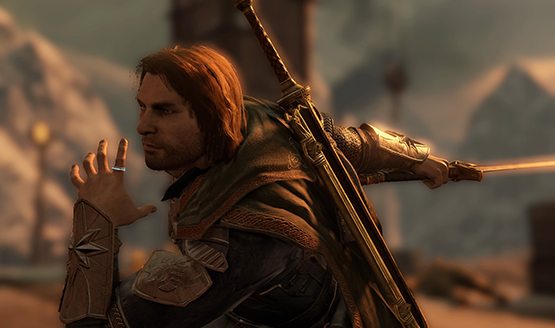
Video games based on movies may never free themselves from the shackles of old flops and preconceived notions of mediocrity, but this is a sub-genre that ought to be championed as an important bridge between two mediums–even as publishers begin to pump out mobile spinoffs and AR games based on some of the biggest franchises around.
Indeed, in biological terms, adaptation is known as the process of change by which an organism or species becomes better suited to its environment (or a new environment, as the case may be). GoldenEye and even Enter the Matrix are living proof that competent, entertaining games can be spun out from Hollywood’s array of blockbusters, and we can only hope that Planet of the Apes: Last Frontier is remembered as one of those rare titles that’s just as good, if not better, than the film on which it is based.
Games Based on Movies Feature
-
Movies to Games...Yay or Nay?
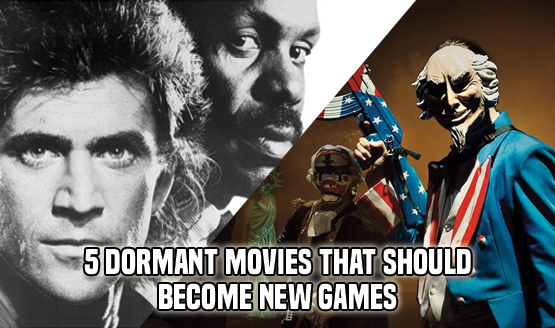
In light of Apocalypse Now - The Game launching a crowdfunding campaign, we present to you five films that could be engineered into five cracking games.
-
Lethal Weapon
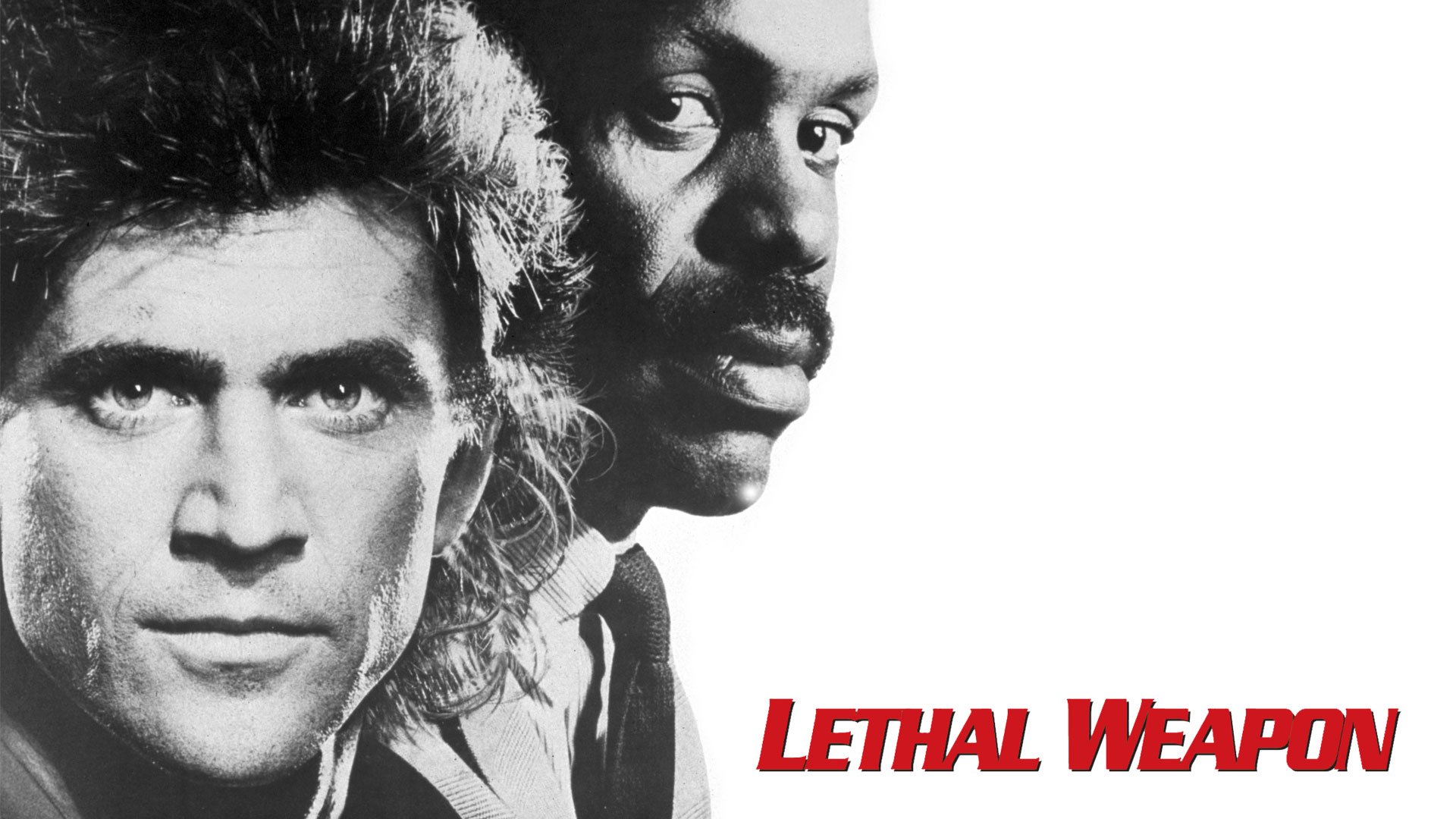
The Pitch: A buddy-cop romp
Who Should Make It: Naughty Dog
Forget about Fox’s serialised spin on Lethal Weapon for the time being and instead cast your mind back to the real Riggs and Murtagh. Brought to life by Mel Gibson and Danny Glover, respectively, few buddy cop movies can hold a candle to Richard Donner’s cult classic and, fuelled by a crackerjack script from the illustrious Shane Black, Lethal Weapon went on to spawn a full-blown action franchise.
Supposing Riggs and Murtagh ever made the jump to video games — Ocean Software’s NES title notwithstanding — a character-driven romp could be just the ticket. Naughty Dog is one such studio renown for top-tier cinematic experiences, and we’d love to take a deep dive into the criminal underworld of corrupt cops and drug kingpins under their stewardship. Are Riggs and Murtagh getting too old for this shit? Maybe.
-
The Purge

The Pitch: Urban survival horror
Who Should Make It: Frictional Games
You’ve heard of it haven’t you? The annual Purge? It’s an annual civil tradition drafted up by the New Founding Fathers of America during which all crime — and we really do mean all crime — is legalized for a period of 12 hours. James DeMonaco’s jet-black series has amassed a cult following since 2014, and though there have been rumblings of a spinoff TV show, The Purge has been placed on ice ever since 2016’s Election Year — how fitting.
Can The Purge be repackaged as a video game? It’s possible. Drawing on their experience with SOMA and the beloved Amnesia series, Frictional Games is a fine candidate to handle an adaptation that thrusts players into such a nightmarish alternate reality. Take the 12-hour window and let it play out in real-time — 2.0x real-time, perhaps? — with survival mechanics and a palpable sense of player vulnerability and you could stumble upon a survival-horror experience that, while not exactly original, is as nerve-shredding as they come.
-
Source Code
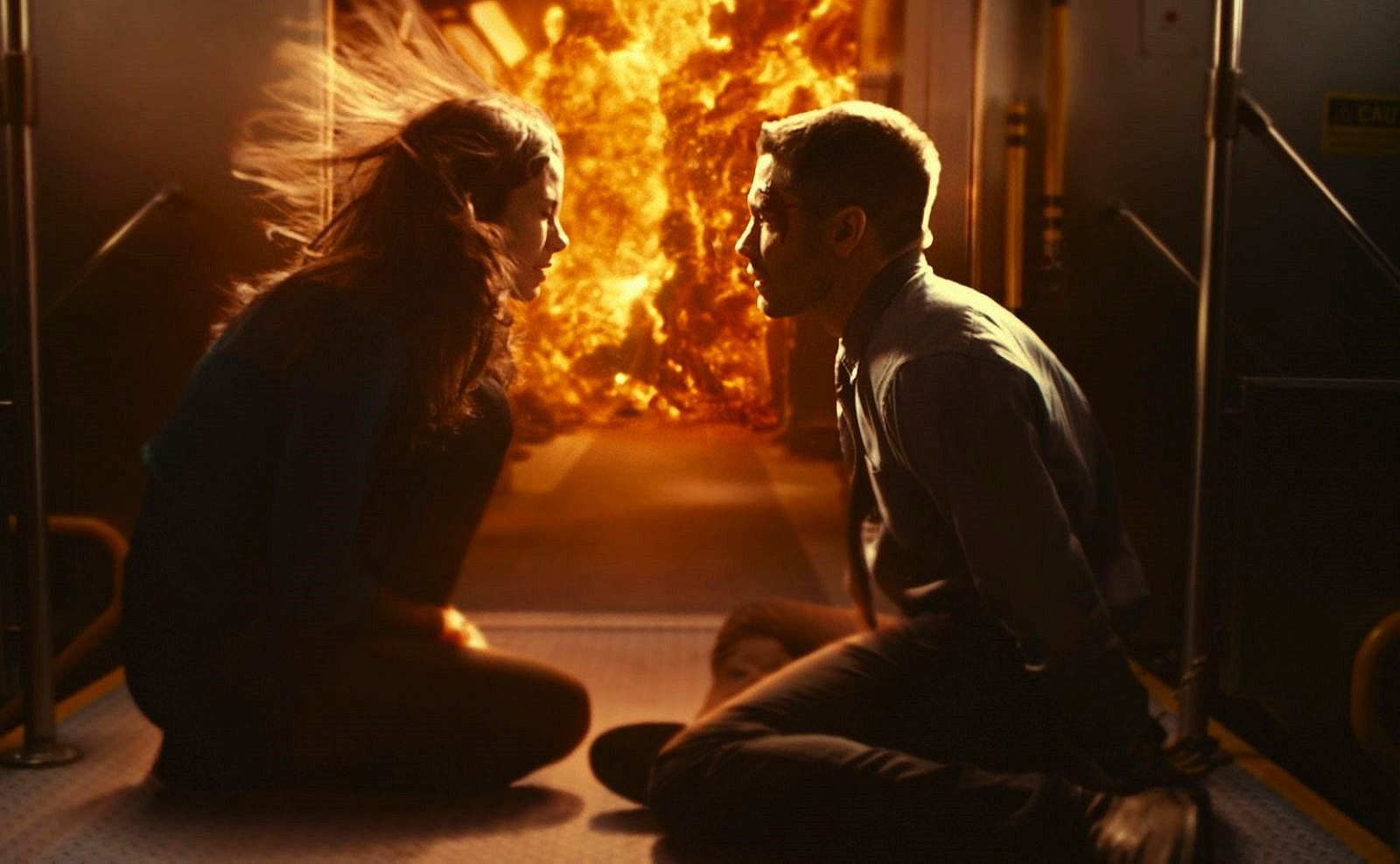
The Pitch: High-octane thriller
Who Should Make It: Quantic Dream
Before venturing onto the fantastical plains of Azeroth, writer-director Duncan Jones crafted two modern sci-fi classics in Moon and Source Code, the latter of which follows a U.S. Army captain (Jake Gyllenhaal) who partakes in an experimental device known as the “Source Code” that allows him to experience the final eight minutes of another person’s life — providing they’re compatible — within an alternative timeline. Pretty neat, right?
What follows is a race against the clock as Gyllenhaal’s protagonist scrambles to locate the identity of a terrorist before the train is blown to kingdom come. It’s Groundhog Day infused with a high-speed thriller, and with branching story lines and moral choices, we can’t think of a better studio to tackle a potential Source Code game than Quantic Dream. From Fahrenheit: Indigo Prophecy to Heavy Rain to the upcoming Detroit: Become Human, the French studio is renown for engrossing narratives where the difference between life and death is often indiscernible. There’s chatter of a Source Code sequel kicking into gear, so why not a video game spinoff?
-
Goodfellas
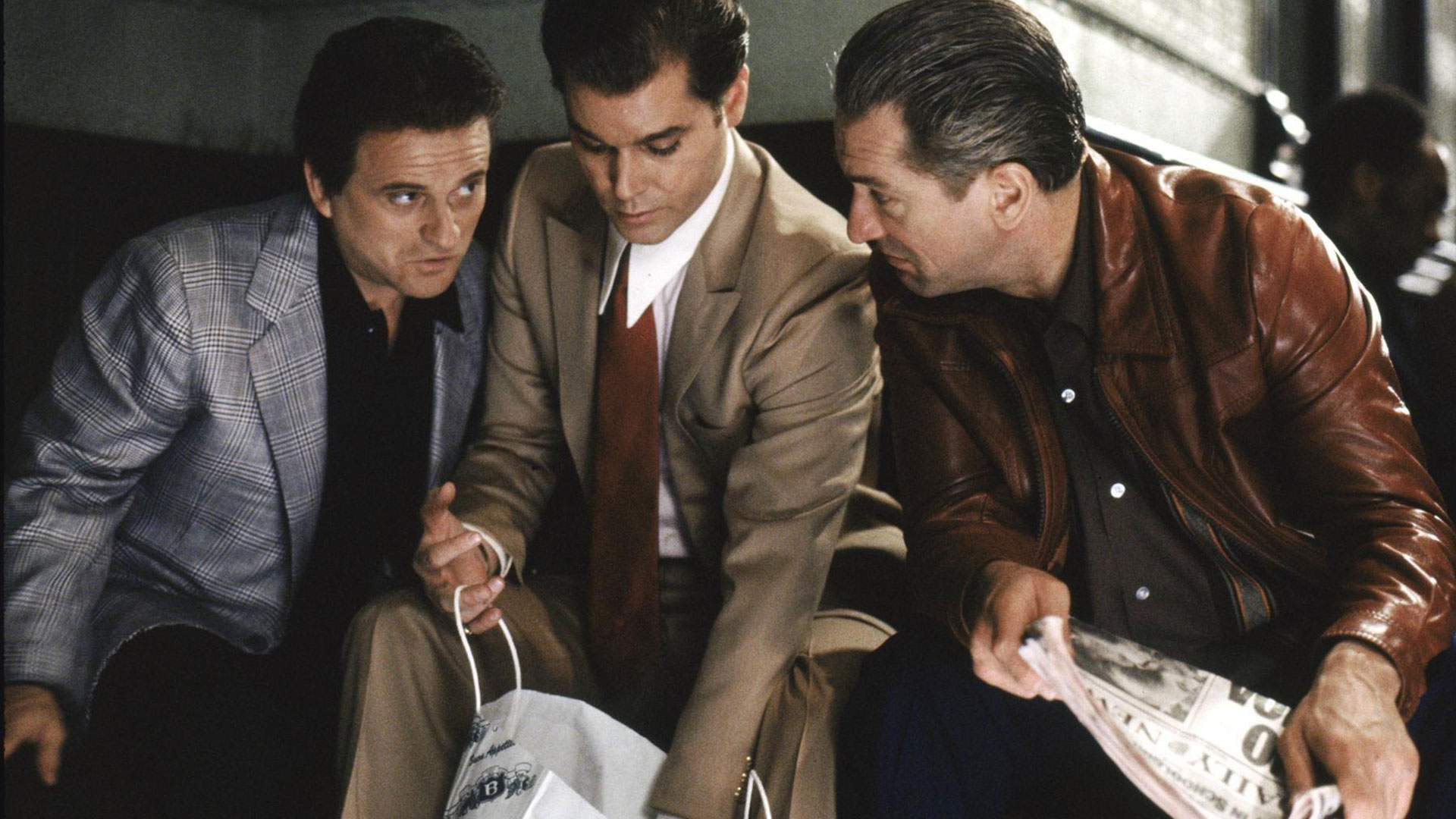
The Pitch: Brooding family saga
Who Should Make It: Rockstar Games
“As far back as I can remember, I’ve always wanted to be a gangster.” That’s Henry Hill, lead protagonist of what is arguably Martin Scorsese’s magnum opus, Goodfellas, musing about his fateful journey to becoming an outlaw. Hard-hitting, stylish, and damn near unforgettable, the saga of Henry Hill and his three generations of life in the mob is one of the greatest stories ever told on film, now imagine if that same story was in the hands of, say, Rockstar Games.
It’s wishful thinking, of course; between Red Dead, Grand Theft Auto and L.A. Noire, Rockstar tends to blaze its own path in the narrative department, but if the studio were to take the reins on Goodfellas, the end result could be an engrossing family drama of crooks, cops and the fine moral line in between. Toss in GTA V’s character-switching dynamic and a Rockstar-helmed Goodfellas game is certainly an enticing prospect.
-
Akira
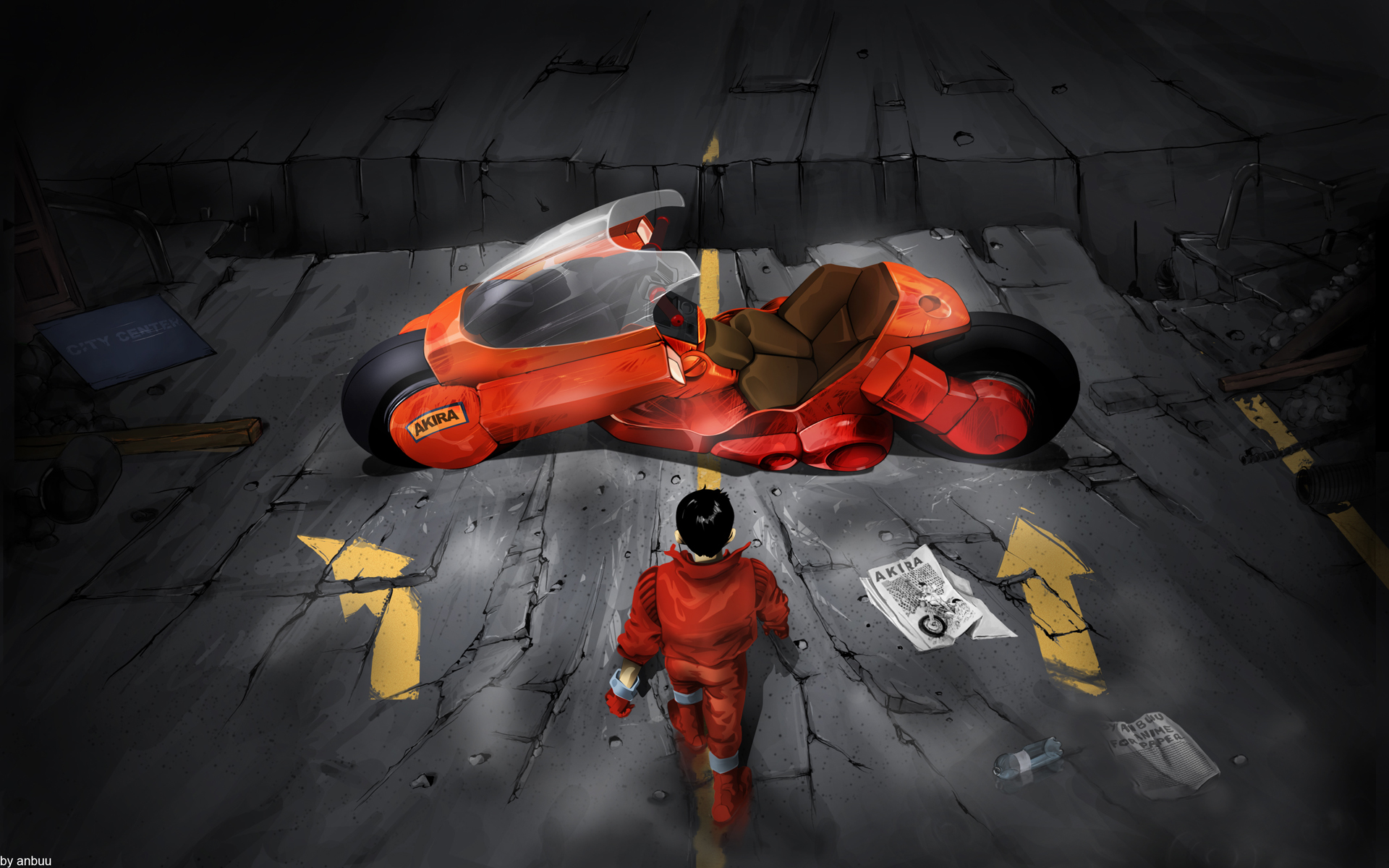
The Pitch: Cyberpunk sci-fi
Who Should Make It: Visceral Games
For all of the potential simmering beneath the neon surface of Katsuhiro Otomo’s iconic manga, there’s never really been a great pixelated adaptation of Akira. Visceral Games could change all that. The studio is currently in the midst of crafting its third-person Star Wars title — a development headed up by former Uncharted alum Amy Hennig — but Visceral has dabbled in the realm of science fiction before thanks to Dead Space, once considered the dev’s flagship series before Isaac Clarke was placed under cryogenic sleep for the foreseeable future.
Per EA’s licensing agreement with Disney, Visceral Games will likely be tied up in a galaxy far, far away, but supposing the studio carves out enough time to pay a visit to Neo-Tokyo, the world of Otomo-san’ six-part manga is teeming with cyberpunk goodness. If it hewed close to the 1988 movie adaptation, the end result could be a violent, hyper-kinetic actioner that doesn’t forget its anime heritage. Hell, if Visceral isn’t up to the gig, perhaps Team Ninja could take point at the helm?
